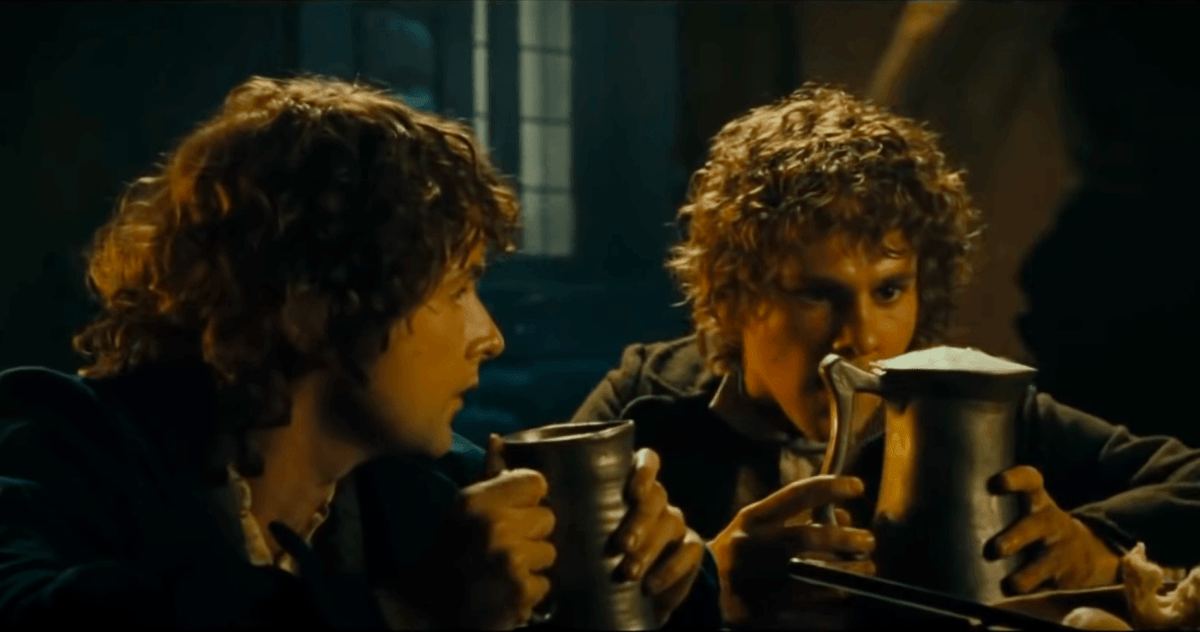Tolkien Tuesday: Writing Meaningful Secondary Characters
How many books have you read where a plot thread is boring as hell?
You get through that super exciting thing that just happened the chapter before, and then it slows way down to see what other characters are doing.
And it’s those characters. The ones that you couldn’t care less about.
UGGGG.
And when I come across those chapters that make my eyelids heavy, I get self-conscious.
Which characters and chapters are going to bore my readers?
Are there chapters people will roll their eyes at because it starts with a couple of characters no one cares about?
That thought is TERRIFYING for a writer.
So, how do we make likable secondary characters?
You have to make them meaningful. The reader needs to connect to them, just like the main characters.
Which means your secondary characters need to think that this is their story. They need to drive the plot too.
And, what is often overlooked, they need to contribute to the deep themes of the story. They shouldn’t just be a plot necessity but play a role in delivering the message of your story.
On that note, let’s take a look at Merry and Pippin from The Lord of the Rings.
Meaningful Secondary Characters: Merry and Pippin
The first thing that comes to mind with Merry and Pippin is their comedic relief. They are a couple of jester characters that add quirky nonsense to the story.
This is especially true in the movies. It’s not nearly as pronounced in the books, but there is a youthfulness to Pippin.
But in both mediums, they start revealing layers. There’s more to them than distraction.
And quotable lines
Funny enough, it’s because they start becoming self-aware. They see themselves as useless to the rest of the party. And this becomes a deep concern for both of them in The Two Towers.
And who can blame them?
Look at who they are comparing themselves to:
Frodo and Sam have the real task of destroying the one thing that can restore goodness in the world.
Aragorn is destined to be king of most of Middle Earth at the end of all this and hasn’t been quiet about it (in the books).
Legolas is just kinda badass.
Gimli too.
And then there’s Gandalf, who fights Balrogs and faces Nazgul by himself.
Like every creative, they depress themselves by playing the comparison game.
But this is where they make themselves a valuable part of the narrative.
Exploring Themes Through Secondary Characters
Over and over again, Merry and Pippin question what they are doing in the Fellowship.
At the beginning of The Fellowship of the Ring, they are both secretly helping Frodo get out of the Shire. When that doesn’t go super great, they stand by his side when darkness closes in around them.
They understand the Shire and even, to a much lesser extent, the town of Bree. They feel in their element and a part of the reason why Frodo is successful.
Then they just are kind of along for the ride the rest of the time.
Or worse, they make things harder. It’s Pippin that accidentally reveals to every Orc in Moria that intruders are making their way through the mines.
Then they both get captured.
What use were they to Frodo? They feel like failures.
Outside of the Shire, they are already small fish in an even bigger pond. They are way outside their comfort zone and are at a loss on how they can actually help.
They begin to question why Gandalf even petitioned to let them join the Fellowship at all. How can two Hobbits, who have gotten themselves separated from everyone else, do anything? They even compare themselves to luggage at one point.
And there we have our theme.
It shows up time and time again in The Lord of the Rings. It started with Bilbo’s adventure and continues to present itself in the trilogy.
“Even the smallest person can change the course of the future”
Pin this!
Merry and Pippin might not be charging Barad Dur itself. Although, they both get their moments in battle. But, they can influence the world in other ways.
Gandalf knew it would take more than swords and charging horses to overcome the forces of evil. The little showcases of courage would make the difference.
The heroism of Merry and Pippin comes in the form of wanting to fight even when they feel like they can’t.
Hobbits, in general, are isolationists. Like many of the races in Middle Earth, come to think of it. Ents don’t bother with the greater world (even though they have the power to do so). Elves are so crushed by the loss of what was that they are literally leaving it for others to deal with. And Men can’t even unite with themselves.
But these two little Hobbits have seen the need for change. They want to change the world but feel like they can’t.
And that is just enough to influence those around them to see things differently.
It’s resilience in the face of adversity in the purest sense.
Think about everything they do.
-Together, they get the Ents motivated to overthrow Isengard. (Neither Sauron nor Saruman saw that coming, and it shifts the power in favor of free peoples).
-Merry stabs the Witch King himself, giving Eowyn the chance to take him down.
-Pippin saves Faramir from being burned alive by his own father and brings hope to those behind the walls of Minas Tirith during their darkest hour.
-And Pippin also kills the leader of the Trolls at the Black Gate, almost costing him his life in the process.
Pictured: Badasses…apparently
These events all shift things in favor of our heroes.
They don’t give in to hopelessness. They don’t allow their worry over being useless to determine their fate. They keep fighting.
Adding Meaning to Your Secondary Characters
Do you care about your secondary characters in your story?
If you don’t...your reader won’t either.
I think we quickly want to get back to the main parts of a story as we write. That sometimes causes us to leave our secondary characters in the dust. We can’t do that.
Find a way to make their role meaningful by allowing your reader to connect to the characters. Make them relatable even in small ways.
Merry and Pippin represent all of us. We aren’t world leaders, and if we have any magical ability, we haven’t discovered them yet. We are little fish in a big pond.
And sometimes, that can make us feel like we aren’t able to create change.
The real fight starts inside us all. We need to keep making the choices that will create positive change in the world, even if it feels like all of that is for nothing.
That’s something we can relate to. It makes us love Merry and Pippin as ordinary people. They have no destiny written in song but create incredible change nonetheless.
We like to think we are just like them.
And that’s why they stick in our minds. That’s why we love when they show up in the story. We have a connection with them.
As you write, make sure you aren’t giving busy work to your secondary characters. Make them important. Make them thoughtful. Give them opinions. Let them make mistakes.
And let them be heroes too.
If you like this geeky writing stuff, sign up for my newsletter. We will explore the geeky storytelling tips from our favorite movies, books, shows, and games and become better writers in the process. Check it out here:










